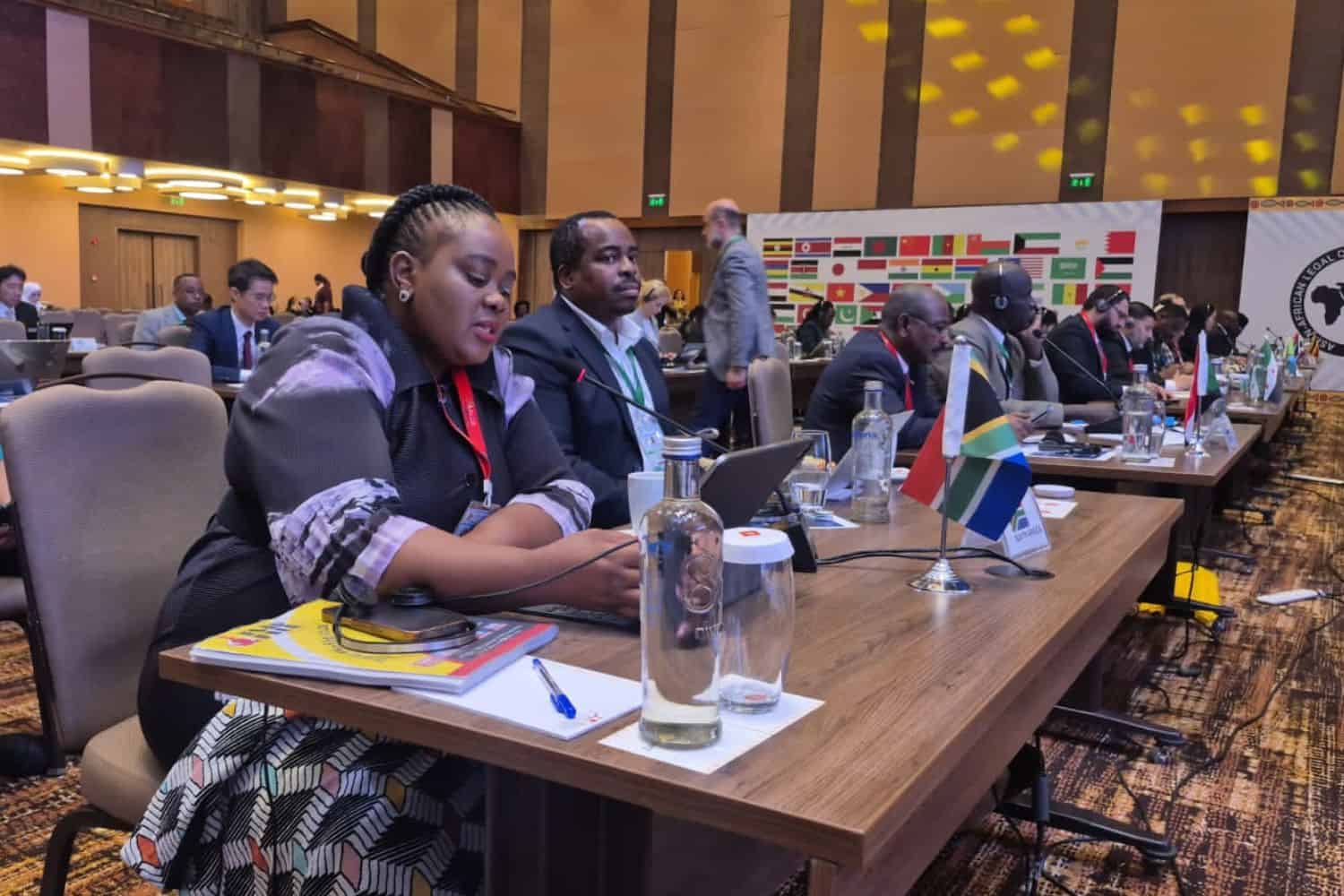The weaponisation of outer space would increase the likelihood of hostilities occurring there, impacting people on Earth.

South Africa says the weaponisation of outer space would undermine international peace and security.
The remarks were made by Minister of Justice and Constitutional Development Mmamoloko Kubayi at the 63rd Annual Session of the Asian-African Legal Consultative Organisation (AALCO) Conference in Kampala, Uganda, on Wednesday.
The conference brings together Ministers of Justice, legal advisers, international law experts, and representatives from international organisations to deliberate on key issues of international law.
Star wars
While space objects have been employed for military purposes since the dawn of the space era, the weaponisation of outer space would increase the likelihood of hostilities taking place there, with potentially significant impacts for civilians on Earth.
Kubayi welcomed ALCO’s continued consideration of the legal issues in outer space, saying it is both timely and essential, as outer space activities are expanding at an unprecedented pace, raising legal, environmental, and security challenges.
ALSO READ: US militarisation of space endangers peace
“South Africa strongly opposes any moves towards the weaponisation of outer space. We caution that the placement of weapons or the initiation of an arms race in space would undermine international peace and security.”
Space junk
Kubayi said the principle that outer space is the province of all humankind, not subject to national appropriation or unilateral exploitation, remains a cornerstone of the outer space legal framework.
“Any emerging legal framework, including on space resource utilisation, must be based on equity and the principle of non-appropriation.”
She said South Africa is also concerned about space debris.
“South Africa remains deeply concerned by the proliferation of space debris. These pose grave risks to astronauts, satellites, and the sustainability of outer space, including equitable access to outer space by developing countries.”
ALSO READ: Blood Moon to grace SA skies: Here’s when you can see it
“We also raise concern about the impact of mega-constellations and “dark and quiet skies” on astronomical observation, including the Square Kilometre Array hosted in South Africa. Protection of scientific research must remain a priority,” Kubayi said.
What is space debris?
Space debris consists of various non-functional satellites, spent rocket stages, and simply pieces of metal orbiting our planet.
According to the European Space Agency (ESA), there are currently over 40 000 pieces of debris larger than 10 cm being tracked and catalogued. Some pieces are as big as a refrigerator.
Additionally, tens of millions of smaller fragments, sized from 1 mm to 10 cm, are hurtling through space at incredibly high speeds.
The number of space debris objects in orbit has increased dramatically since the start of the space age. There are now more than 10 000 functioning satellites in orbit, and each time a new satellite launches, the risk of creating more debris grows.
Kubayi said South Africa stands ready to work with AALCO member states to ensure that outer space remains a “peaceful, sustainable, and inclusive domain, for the benefit of all humankind and for future generations.”
ALSO READ: Apollo 13 moon mission astronaut James Lovell dies at 97 [VIDEO]
Support Local Journalism
Add The Citizen as a Preferred Source on Google and follow us on Google News to see more of our trusted reporting in Google News and Top Stories.








